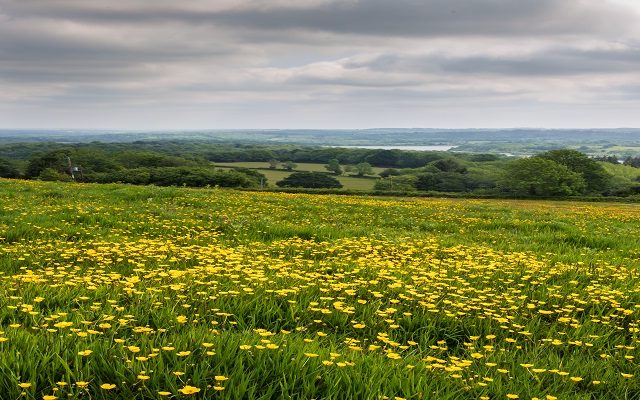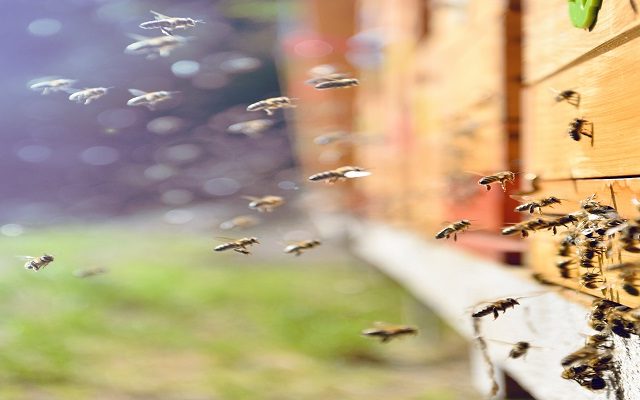Land Business Update | Week Commencing 16 September 2024
Farming
Compulsory register to protect bird health – registration deadline 1 October
Anyone who keeps birds in England and Wales – including those with just one bird and including backyard flocks, birds of prey and pigeon fanciers – must sign up to the new compulsory Animal and Plant Health Agency (APHA) register before 1 October. In Scotland, the deadline is 1 December to register with the Scottish government. The register will be used to identify all bird keepers in disease control zones. Caged birds in domestic houses are not included.
Wales’s new Integrated Natural Resources Scheme now open for collaborative applications
The scheme aims to encourage land managers to work together to improve natural resources, including through protecting carbon-rich soils, creating woodland, natural flood risk management and improving habitat connectivity. It is separate to the Sustainable Farming Scheme but could inform the collaborative element of the scheme. The application window closes on 27 September.
Energy
New National Energy System Operator (NESO)
NESO has been created by transferring National Grid to public ownership. It aims to help connect energy generation projects to the electricity grid, working alongside Great British Energy, another new state-owned company, to deploy renewable energy. The government’s ‘Mission Control’, headed by Chris Stark, ex Climate Change Committee, has already asked NESO to provide advice on how the UK will hit its goal to deliver clean power by 2030. NESO will be launched on 1 October 2024.
Scotland’s Green Industrial Strategy
The new Strategy aims to set the direction for policy and identify opportunities that will contribute to the transition to net zero. It identifies five key areas:
- Wind energy – both onshore and offshore as well as supply chain, infrastructure and manufacturing.
- Carbon capture, utilisation and storage – due to Scotland’s geological CO2 storage potential and the expertise in subsea engineering.
- Green economy professional and financial services.
- Hydrogen – due to the country’s comparative advantage in renewable electricity generation.
- Clean energy intensive industries – including electrification of existing energy intensive industries and as a hub which will benefit from Scotland’s growing capacity in renewable electricity production.
Environment and natural capital
UK to appoint new nature and climate special envoys
The envoys will work together, with ministers, to help to coordinate work on nature and climate issues across government departments. This reverses one of the actions of the previous government which abolished the climate post over a year ago. Separately, the Foreign Secretary David Lammy has announced the launch of a new Global Clean Power Alliance to speed up the global shift to renewable energy and help countries move away from fossil fuels.
Butterfly emergency declared
Results of this summer’s Big Butterfly Count showed a marked and concerning decline in numbers. Overall, participants spotted just seven butterflies on average per 15-minute count, almost 50% fewer than last year’s average and the lowest in the 14-year history of the Big Butterfly Count. 9,000 Counts were logged as seeing zero butterflies. Butterfly Conservation said that as butterflies are a key indicator species, when they are in trouble it is an indication that the wider environment is in trouble too. They called for an immediate ban on neonicotinoid pesticides with no exceptions.
Forestry
New TreeAlert dashboard enables local situation to be viewed
Registered users can see up to two years of TreeAlert reports as lists, charts and maps, to help them understand what’s happening with tree pests and diseases in their local area and across the country. S&P comment: this is a very useful early warning tool for planning for potential pests and diseases.
Updates to the Tree Health Pilot scheme
There have been some tweaks to this scheme in September but its main purpose remains testing different ways of slowing the spread of pests and diseases in England. It expands on support available through the Countryside Stewardship Woodland Tree Health grant. Grants are available for larch trees with Phytophthora ramorum; spruce trees with or at risk of Ips typographus (eight-toothed spruce bark beetle); sweet chestnut trees with Phytophthora ramorum or sweet chestnut blight; oak trees with oak processionary moth (OPM); and ash trees with ash dieback.
Property and rural economy
Renters’ Rights Bill introduced to Parliament
There are now over 10 million people in the private rented sector in England, many more than when the last major review of the sector happened in 1988. The government says that reform is well overdue and that the aim of the Bill is to ‘give renters greater security and stability so they can stay in their homes for longer, build lives in their communities, and avoid the risk of homelessness.’ The Bill, which contains many proposals that are similar to the previous government’s Renter’s Reform Bill, plus some new ones, has been published and key proposals are:
- Abolishing Assured Shorthold Tenancies and changing all assured tenancies into monthly (or less) periodic tenancies. This means tenants can end a tenancy by giving two months’ notice. NB All existing ASTs, as well as new tenancies, will automatically be converted to this new system on a given date.
- Abolishing ‘no-fault’ evictions under section 21 of the Housing Act 1988. Grounds for possession will also be amended so that they are ‘fair to both parties’.
- Introducing a statutory procedure for increasing rents once a year to market rate (using a section 13 notice), and for tenants to challenge any increase at an independent tribunal.
- Introducing a Decent Homes Standard for the private rented sector.
- Extending ‘Awaab’s law’ to the private rented sector. It currently requires social landlords to fix reported health hazards within agreed timeframes.
- Stopping rental bidding wars. Landlords and agents will be required to publish an asking rent and it will be illegal to accept offers made above this rate.
- Stopping letting agents from discriminating against tenants on benefits or with children.
- Introducing the right for tenants to request a pet, which cannot be unreasonably refused.
- Creating a new ombudsman to provide quick resolution of disputes. It will be similar to the service available to social tenants. The issue of speed of resolution of disputes and court capacity is expected to be a significant area of discussion.
- A new private rental sector database. Landlords will need to be registered on the database in order to use certain possession grounds.
- Strengthening local authority enforcement by expanding civil penalties.
The second reading is on 9 October. The government hopes that it will become law in the first half of 2025.
How the area of tenanted land is changing
This year’s June Agricultural Survey included questions for farmers who rent land (under any type of agreement, including short seasonal lettings). 3,900 farmers provided responses, so a significant size sample. The area of land rented by respondents had remained the same for most respondents (78%) and had increased for 11% and decreased for 10%. Farmers who reported that the landlord had asked them to surrender some or all of their rented land before the end of the tenancy agreement reported that the most common reasons were for non-agricultural purposes including development (34%of respondents to this question), which has always been the case, and for using the land for agri-environment schemes (22%), which we think is a new reason.






